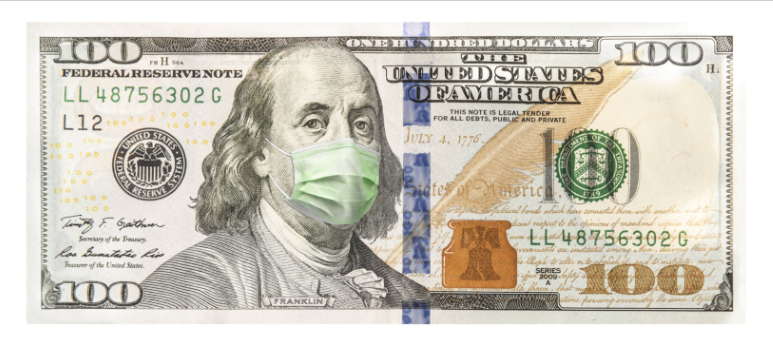
“To succeed in life, you need three things: a wishbone, a backbone, and a funny bone.” - Reba McEntire
Let's start with Premium Tax Credits (PTC).
These are the magic beans that help to reduce the cost of health insurance under the Affordable Care Act (ACA). When you buy health insurance through either a state exchange or the federal HealthCare.gov site, you may be eligible for help in paying your monthly insurance premiums. This assistance is actually an advance against the tax credit that you can claim when you file your 2021 income tax return in 2022.
While this arrangement does provide health insurance to millions of Americans that previously couldn't afford it, there is one significant hiccup to the whole setup. As your income goes up, the credit goes down. Once your modified adjusted gross income (MAGI) exceeds 400% of the federal poverty level, the tax credit vanishes entirely. This is generally referred to as the "ACA cliff."
The ACA cliff thresholds are based on family size. For 2021, the MAGI thresholds were:
- One person: $51,250
- Two people: $68,680
- Three people: $86,880
- Four people: $106,000
- Five people: $122,720
- Each additional family member: $17,920
If your income exceeds this threshold for the year, then you are suddenly no longer eligible for any health insurance subsidies. This can be particularly frustrating if you have variable income and earn close to cutoff. A little too much overtime, or too big of a bonus, can easily push you over the limit and make you ineligible for this tax credit. You may have planned for it in your budget and relied on the credit all year long, and then... BAM! (BAM! is NOT a Government Abbreviation or Acronym) That December overtime makes you ineligible for the entire year!
No health insurance is clearly less than ideal, especially during a planet-wide disease outbreak. You might really want that health insurance right about now (you know… just in case).
Fortunately, the American Rescue Plan Act (ARPA) delivers a solution, by eliminating the ACA cliff for 2021 and 2022. Now, just because your income jumps over the cliff, your health insurance won’t necessarily go with it.
Instead of the hard dollar cutoff, ARPA states that the most you will need to pay for health insurance purchased through an exchange is 8.5% of your MAGI. If your premiums are more than that, then the PTC (Premium Tax Credit) will cover the excess, regardless of how high your income is.
Of course, if your health insurance premiums are less than 8.5% of your MAGI, then you don’t get any “bonus” help with paying for your health insurance, and this may all be sounding like a moot point to you.
Not quite.
Under ARPA, if your MAGI is already below the old ACA cliff, you will see a small increase in your PTC. Even better, it’s retroactive back to January 1, 2021. So, you might want to check the health insurance exchange to see if you can purchase a lower cost plan, or you can even purchase a slightly better plan for roughly the same cost.
All these changes in calculation of the PTC will be reflected on HealthCare.gov and the state exchanges by April 1st.
But wait...there’s more!
Three more significant items to discuss, in fact. In lightning round fashion…
- If you have health coverage through an employer but lose your job, you become eligible for COBRA. This allows you to keep your old employer plan for up to 18 months and can be a great option. Unfortunately, you’re usually stuck paying the FULL cost of premiums under COBRA and group plans like that can get a little pricey. ARPA provides help, though, and will pay your COBRA premiums for you between April 1 and September 30, 2021.
- If you’re normally stuck paying back to the IRS any Premium Tax Credits (PTC) that you received during the year (but are later deemed ineligible for because your income went off that cliff we discussed earlier), then you can end up with a surprise tax bill that you’re not ready to pay. Under ARPA, the good news is that this clawback of excess PTC is eliminated for your 2020 tax return.
- If you missed the window of opportunity to get health coverage on the exchange, now you can. By executive order, the president has re-opened health insurance enrollment on the exchanges through August 15. In combination with the changes mentioned earlier to PTC calculations, this means that it’s worth your while to check the exchange for a better deal on your health insurance after April 1st or sign up for health insurance if you missed open enrollment at the end of 2020.
Getting the best coverage for your health insurance dollar is important for you and your family
We're in your corner with these Blog Posts...
BE THE ROAR not the echo®
Warmly,
Janet Behm